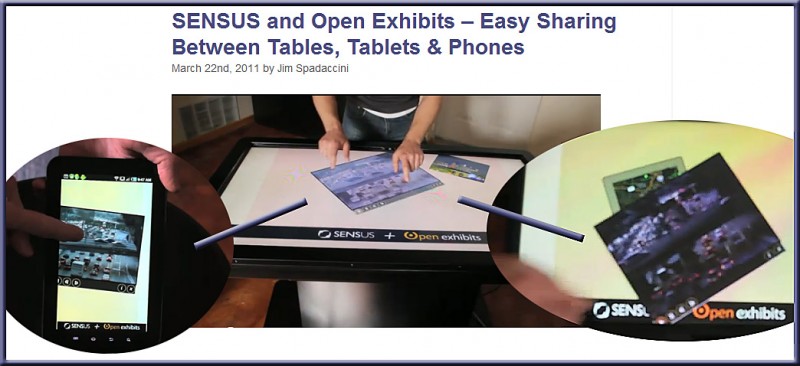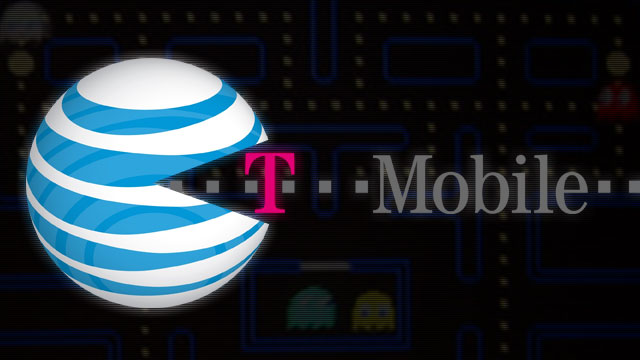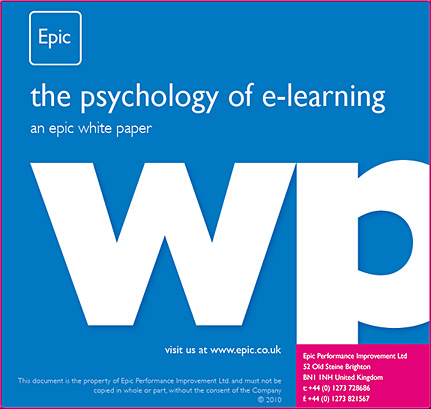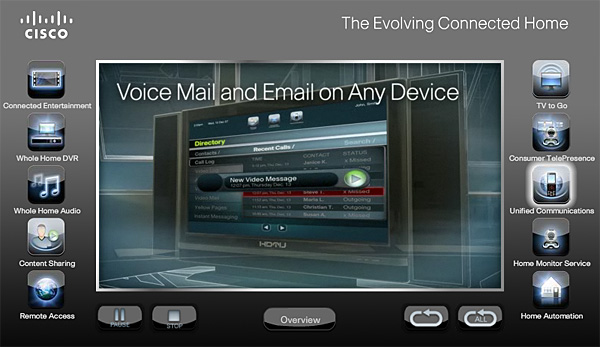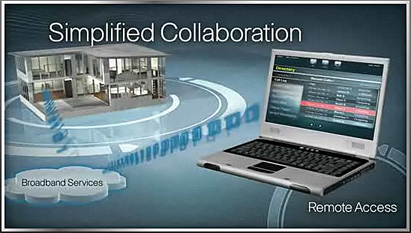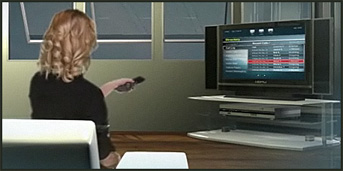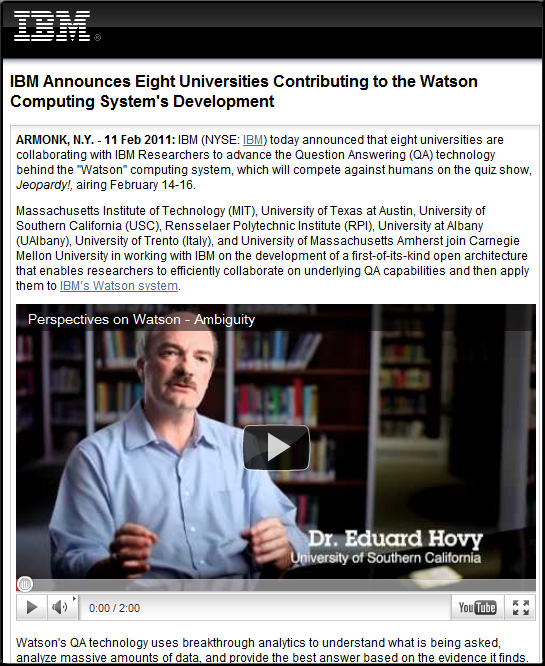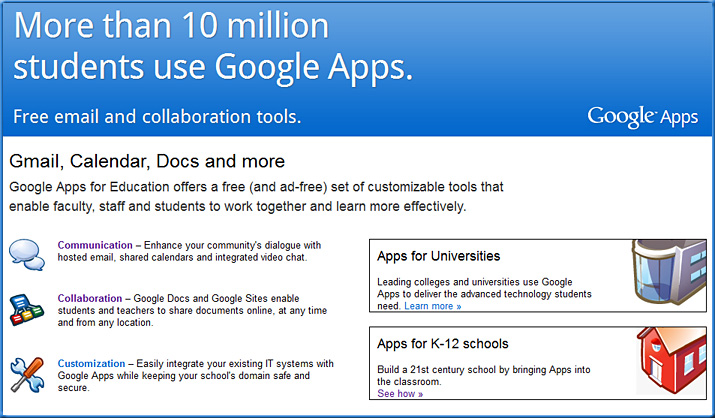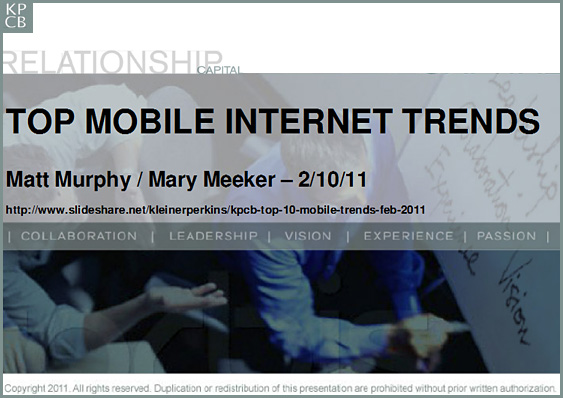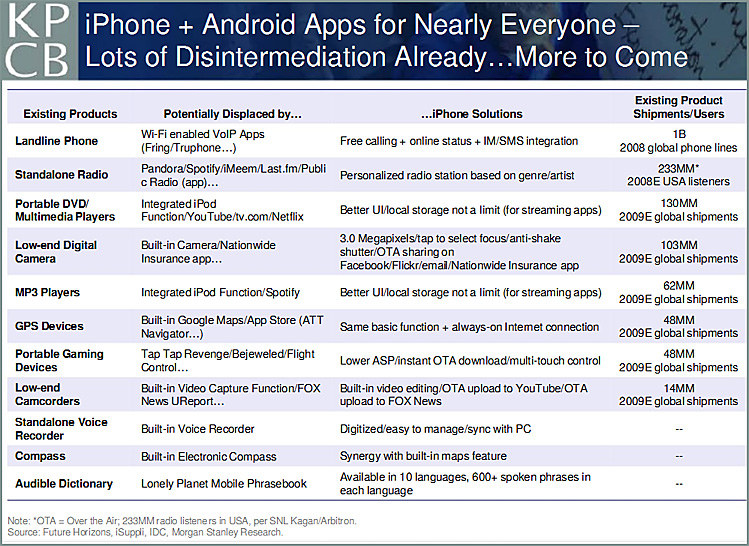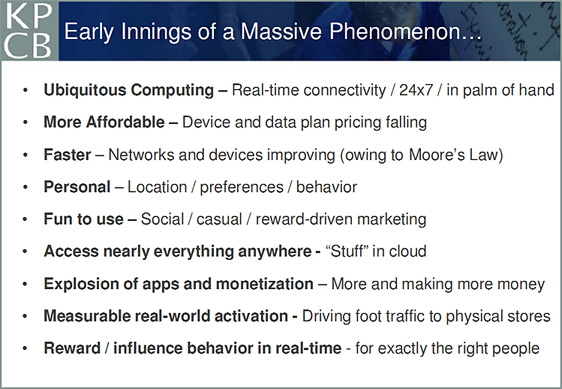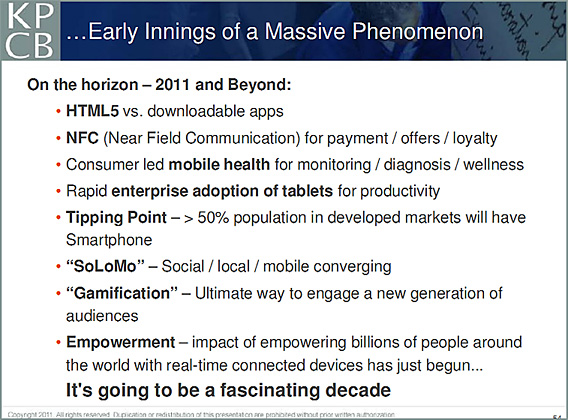Cisco, Polycom Top Video Conferencing/Telepresence Market — from The Web Conferencing Blog by David Chao
SENSUS and Open Exhibits – Easy Sharing Between Tables, Tablets & Phones — from ideum.com by Jim Spadaccini
.
The concept is simple:
Make networking and sharing transparent across
multitouch devices and operating systems.
.
From DSC:
Even more powerful if such a file could be quickly sent/shared with a remote classroom/student!
AT&T buying T-Mobile
Some of the various articles on this topic:
- AT&T to Acquire T-Mobile USA from Deutsche Telekom — from AT&T
- Why AT&T Bought T-Mobile — from Mashable.com
- AT&T Buying T-Mobile for $39 Billion — from ReadWriteWeb.com
- AT&T swallows T-Mobile to create US’ largest carrier — from arstechnica.com
Notes and most of the slides from the Keynotes [11.02MB]
John Chambers, CEO, Cisco
John reflects on why he believes we are better positioned than ever, as a global community, to take advantage of the major transitions that are occurring in education and technology today.
Michael Stevenson, Vice President, Global Education, Cisco
Michael discusses the journey for 21st century learning around the world, and how Cisco is working on critical partnerships to advance education transformation globally.
Gregory B. Whitby, Executive Director of Schools, Diocese of Parramatta
Leading learning for today’s world requires a deep understanding of learners, pedagogy, content and cultural change. Good teachers positively influence student learning outcomes so every school leader has a responsibility to lead and sustain educational change.
Salman Khan, Founder, Khan Academy
There is a lot of talk of how to use technology to improve technology, but very little discussion about using technology to RETHINK education. Salman Khan will outline his path to building the Khan Academy–used by over 1 million students every month–and think through what it means for transforming what happens inside and outside of the classroom.
Gay Krause, Founder, Krause Center for Innovation
The Krause Center for Innovation (KCI) was established to design and implement innovative professional development emphasizing technology integration and STEM subjects, to support the diverse workforce needed to compete in the knowledge economy. Our programs include: (1) MERIT (Making Education Relevant and Interactive through Technology) for enhancing curriculum, pedagogy, and technology skills for educators; (2) FAME (Faculty Academy for Mathematics Excellence) for using Internet technology to support student learning in Algebra; (3) FASTTech – short technology classes to enhance software-based skills. This presentation will address what we’ve learned from our ten years of professional development experience as well as the recommended future direction for PD in order to train educators to guide students to succeed in a global economy.
Gene Wilhoit, Executive Director, Council Chief State School Officers
What do today’s graduates need to know to succeed in tomorrow’s world? In the US and around the globe there are heightened expectations for education, and the multiple attributes students need to acquire to become active contributors in a complex global society. In this session, you will learn how the Council of Chief State School Officers is reshaping American public education, through clear, focused standards, more robust assessment designs, and accountability systems; redesign of our education workforce: and enhanced and dynamic information systems.
.
Notes and most of the slides from the College and University Breakout Session [9.52MB]
.
Meet the winners of DEMO 2011 — from readwriteweb.com by Mike Melanson
The Future of television: Sweeping change at breakneck speed — from Cisco by Scott Puopolo, Carlos Cordero, William Gerhardt, Kate Griffin, Leszek Izdebski, and David Parsons, Cisco IBSG Service Provider Practice
10 reasons you won’t recognize your television in the not-too-distant future
Also see their blog posting on this.
.
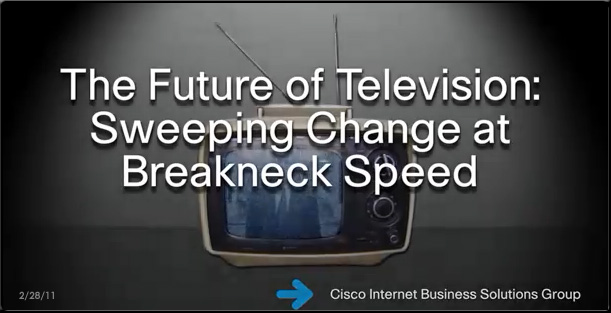
.
Reminds me of a graphic I created a while back…
.

Also see:
Moodle 2.0 integrations – Alfresco — from Synergy Learning by Joel Kerr
As Moodle 2.0 becomes more established we are finding more and more clients eager to upgrade from their current version.
Not only is the software being recognised for it’s new and improved features, it also makes integrating with third party tools a whole lot easier, opening up a whole new world of possibilities for those moving to Moodle 2.0.
Over the next few blog posts I am going to look at some of these external tools to see what benefits they can bring to your operations….starting with Alfresco.
Alfresco
If you haven’t heard of Alfresco before you might find it a rather useful tool. It is a Content Management System (CMS), which basically means it can be used for managing the production of electronic content (text files, videos, graphics etc.) via a set of rules, processes and workflows.
Like Moodle and Mahara, Alfresco is Open Source and as a CMS it specializes in:
Cool Tools – Rapid e-Learning with Brainshark or Captivate — from Blackboard’s Next Level Learning blog
Let’s say your company has a new product update and you need to get the information out fast to your team of sales and product managers. Or maybe your company is growing quickly and you need to train a brand new team in a matter of days. Did a new certification just get released and you need to get information out to your association members ASAP? No problem! This is where Blackboard and rapid e-learning tools like Brainshark and Captivate come in.
Also see:
- Brainshark Mobile & QR Tags: An Exciting Combination
QR Codes 101:
A QR (“quick response”) Code or Tag is a square barcode that you can scan with your smartphone’s camera with the help of a QR Code app to immediately launch a link or URL on the mobile phone’s web browser. Said another way, QR Codes are a simple way to connect the offline world with the online world. This represents a huge new point of delivery for Brainshark video presentations. Why is this important? …Because you want your content available when and where your audience is primed for it.









